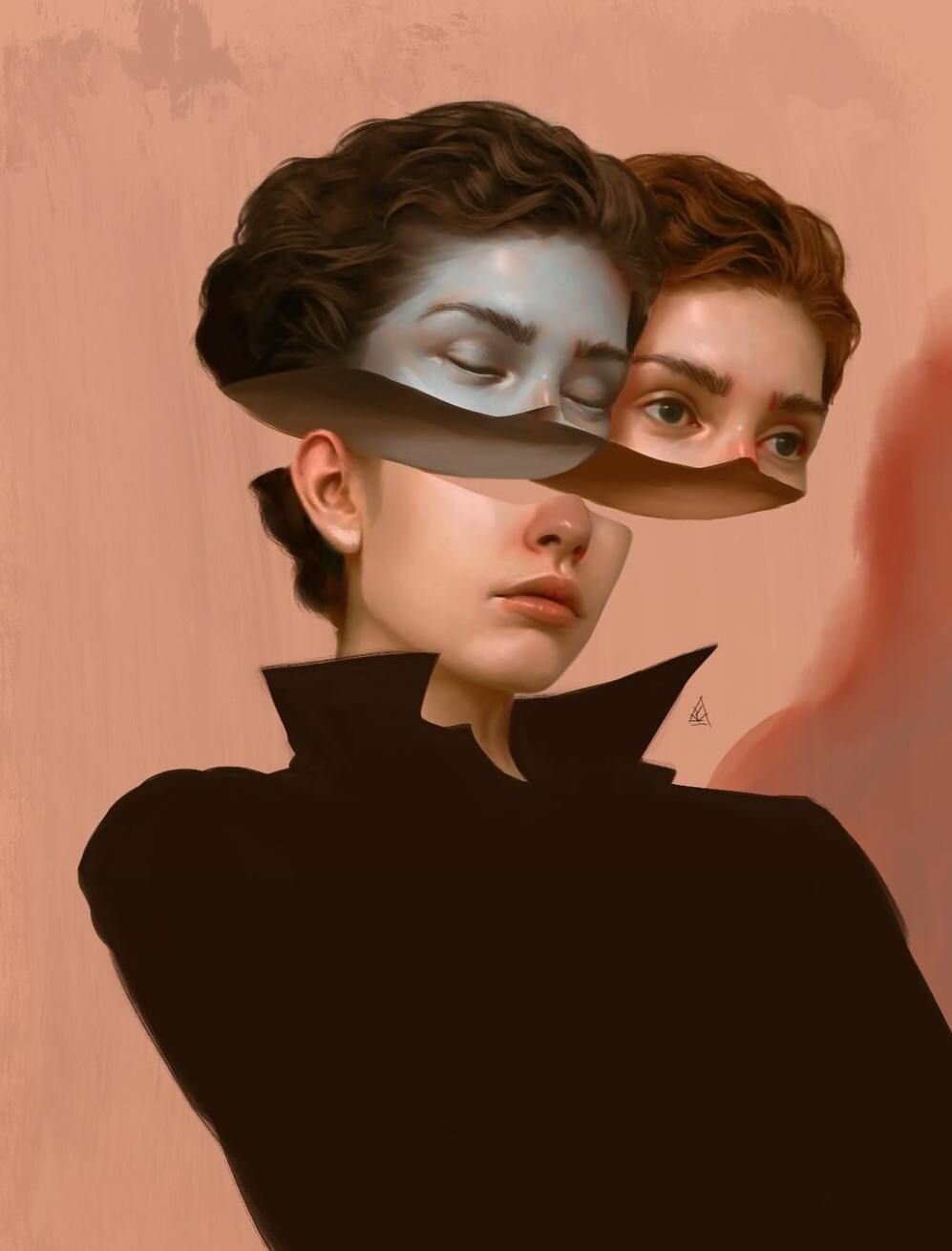“Again, he must be open in his hate and in his love; for concealment shows fear.”
- Aristotle, The High-Minded Man
Two of my ex-boyfriends from my college days, both brilliant engineers with incredibly broken spirits, loved labeling me as ‘weird’ and would call me that when they were irritated with me. I dated one right after the other, and both could not stand how non-verbal learning disability (NVLD) and major depressive disorder (MDD) had shaped me, snapping ‘Stop acting weird!’ more times than I can remember, so much so that being called ‘weird’ now causes me to physically flinch.
According to them, I was ‘weird’ because I needed hours to emotionally and physically recharge after social settings: having NVLD meant that my brain would have to go into severe overtime to make sure that I could understand all of the social cues happening at the bar, the club, the post-kayaking drink up at the house our team lead lived at on President’s Row in Eugene. A lot of times I would go quiet, one eye drooping from exhaustion. “Your girlfriend’s acting weird, why is she almost asleep?” was asked on more than one occasion. My fierce addiction to caffeine really started in undergrad, as I could not survive a schedule of classes, work, club sports, and volunteering at different labs and museums without the help of coffee, Matcha tea, and Redbull.
I was also considered ‘weird’ because I stimmed: when I was overtired or exhausted, I would (and still sometimes do) pick my cuticles to bloody pieces, and often found myself knitting when things got quiet to calm myself down. Jason loved the many wool hats I knit him, especially if we were out kayaking. However, he’d still tease me when I reached down to my purse to do a few rounds to calm down if I felt anxious that day and didn’t feel like picking my fingers to bloody bits in his 1986 Suburban van.
I was ‘weird’ because of my vocabulary not quite matching my terrible math skills: I often used incredibly large, complex words to convey my emotions, but would struggle to do taxes, memorize Excel equations for research work, and follow Connor as he attempted to teach me how to play Grand Theft Auto on one of our dates.
I was ‘weird’ because of my terrible eye hand coordination: so I could not drive a stick shift to save my life. Which was fine, as I only drove automatic, rather than manual.
I was also ‘weird’ because I laughed too loud, and that I was direct with my thoughts and feelings for people that I loved and disliked.Rather then play emotional games with the ones that I loved, I would walk away, to let myself calm down before speaking, a trick I had learned from my counselor as a elementary school student. It was (and still is) very hard to get me to really get into a dramatic lover’s quarrel, as I would walk away from them and then write down my feelings, and then come back when I had a breather and was ready to discuss our issues, whether they were about his jealousy or my exhaustion. I remember coming back to our house to talk after a fight before I left for work, and being screamed at by Jason about how ‘weird’ it was that I could come back to him so calm after our fight that morning.
And perhaps that was it as well, wasn’t it? Broken people attract broken people: I couldn’t be manipulated into yelling or fighting with my domestic partner when I did not see the point in doing so. In that way, my NVLD protected me from these relationships from going further and entrenching me deeper into these toxic people’s lives. These people did not want someone who found a way to cope with their disability, who was called ‘weird’, and shrugged this insult off like water on a swan’s back. They wanted someone broken who would be molded into their own ideal partner, and I was too grounded in who I was, buried within the protective shell of my nonverbal strangeness, to be drawn further into their own worlds of loathing and drama.
Admittingly, when both of these relationships ended, I was told it was my fault both times. I was (you guessed it!) told I was too weird, that the perfect woman for them was gentle, feminine, and would never be blunt or be picking their fingers when they had a terrible day. That their perfect person, why she’d sit and sweetly be berated by them instead of walking away, writing, and then coming back calm. I figured I was too ‘weird’ indeed, and figured, when I started graduate school at age 23, that I was going to be the quirky old maid who was too strange and into herself to find any one.
Ironically, less than a year later, I met Eric, while we were both researching and working at Texas Tech University. Weirdness or my strange habits with NVLD were never brought up: our dates were filled with gut-busting laughter, genuine conversation, and patience for each other’s oddities. I can count on one hand how many truly terrible fights we have had in the 10 years we’ve been together.
We married a few years later, and now are the parents of a daughter, and have too many degrees, pets, and projects between us.
For the record, he’s never called me ‘weird’.
Dr Vogt Veggeberg writes from her hometown of Chicago, where she lives with her husband, daughter, and assortment of pets. A graduate of University of Oregon and University of Illinois at Chicago, she currently works as a nonprofit director and writer. Her work can be found at https://linktr.ee/krisveevee
Cover Photo: Aykut Aydogdu
